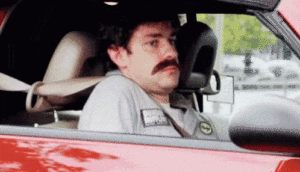At the end of my using and drinking, in the terminal phase, I was very much inclined toward isolation. I didn’t feel connected to the people in my life, the few that remained. I didn’t feel like I could open up to them and I wasn’t comfortable spending time around them. After all, they weren’t going to approve of my habits – and if they did, why would I want to spend time with someone who let me do that to myself?
Friends in Low Places
Isolation didn’t come naturally to me. Growing up, I had a lot of friends. Too many, perhaps. Ours was one of those households where there weren’t any rules. You could smoke, drink, do drugs, whatever. We were running a nightclub for grungy teenagers. I was never grounded and never had a curfew. I was down for anything, anytime. My grades were often good, but they didn’t have to be. There were no consequences.
One would think this might nurture addiction issues in someone young and impressionable. One would be correct. I didn’t make it to 20 before getting arrested for forging prescriptions to feed a monstrous Xanax habit. At this point, I was using and drinking whatever I could, whenever I could. I was smoking like a fiend. I was surrounded by people who did the same, with no real interest in spending time with people who didn’t.
Much of my 30s were spent as a heavy drinker but remained fairly social. Drugs and alcohol have a way of bringing their users together, at first. It’s easy to make fast friends with people who share your vices. Other regulars at the bar. Other druggies in your social circle. You’re doing something most people wouldn’t approve of, but you’re not doing it alone, so it seems like less of an issue. This can go on for a long time. I’m surprised it didn’t catch up with me sooner.

Me, with all of my drinking friends
At some point, you are doing it alone. My substance abuse was no longer socially acceptable, even among other alcoholics and addicts who were still in the game. Addiction is, as they say, a progressive disease, and mine was now in the isolation phase. This brings us back to where this blog started, I realize; I guess I just wanted to stress the fact that I went from being a very social creature to suddenly being quite the opposite.
Leaning Into It
When I first started isolating, I didn’t really think much of it. It was, after all, a lot cheaper. Sometimes I thought the hermit life was somehow romantic. That even if I was lonely or miserable or suffering, those experiences made my life richer, more interesting. I would drink all day until I fell asleep. When I woke up, I would start again. This kind of consumption, this Leaving Las Vegas lifestyle, doesn’t last long. It kills you.
I won’t bore you with the details of my end-stage alcoholism. I have told that story before, many times, if you’re interested.

Drinking, at this point, is no longer fun.
I was no longer a social butterfly. On the contrary, those years spent drinking alone turned me into a complete introvert. I lost a lot of friends in that period. Most people simply disappeared, backing away slowly after one of my late-night texts or a social media meltdown. I did have a few friends confront me about my (now, clearly) obvious struggles with substance abuse. That didn’t go well. I got defensive immediately, and hostile. The friends that didn’t run off, I ran off. I got used to living that way.
That isolation mentality was tough to shake when it was time to make some changes. I knew I needed help, and from my legal adventures knew I could find it in AA and NA, but I had been there before. I knew it required a certain amount of transparency if I wanted it to work. That wasn’t something I was comfortable with, at all. But the first thing I had to do was get myself out of my apartment. After years of drinking my day away as I “worked from home,” had food delivered, and generally hid from the world going on outside my door, I wasn’t used to being among other people. I certainly wasn’t comfortable talking to them.
Making Meetings
Getting myself to a meeting was hard. Getting out of the car was harder. Participating took more effort still. Being “honest, open, and willing,” as these fellowships ask you to be, was almost impossible. I still needed to try. Isolation wasn’t doing me any favors. I could, at least, listen.

Outside of a meeting, hiding in the car.
I’d come to meetings and hear people talking about their families, their careers, their secrets, their hopes and dreams. It was shocking to me. Why would you do that! Who are these people to you? Why do they even care? Am I supposed to care if they care? Do I have to be funny? Am I interesting enough to share? I’ve spent years hiding who I am and what I do from the world, but I’m just supposed to go for it, drop my guard, and open up to these people?
It took a lot of meetings before I started getting comfortable with participating at all. At some point I’d had enough of isolation, of hiding from other people. Eventually, I started sharing more about myself than how my day was going and how I felt to be there, that I was just there to listen today, thanks. You see these programs working for other people when they share and you want that for yourself.
Now, you’d have a hard time shutting me up. I’m totally open and honest because that’s what it takes to maintain my recovery. I’ve shared a lot of intimate details in meetings here and it’s never burned me. It actually feels pretty good. It’s cathartic. Whenever I share about something that’s been bothering me, it’s a relief. A burden shared is a burden halved and all that.
I’ve learned that I don’t really have anything to hide, especially here, so there’s no point in putting walls up to keep the fellowship out. Nobody’s going to judge me for the stuff I share, nobody’s googling me, nobody’s taking notes. We’re here to help each other, to support each other. We must be, for this to work, and we all need this to work.
I’m lucky to have made such good friends in these fellowships, because by the time I found my way back to them, I’d alienated just about everyone else. I was desperate, in survival mode. I was out of half-measures to try, and very alone. Once you’re here, though, once you’ve committed to being “honest, open, and willing,” you’re never really alone unless you want to be.

Thank you for sharing, Wombat. Really relate to your post. Well written. Liked the pictures. Is the site not working anymore? I can’t see / find the meetings.
Thank You. I Needed This.
Being open and honest hasn’t worked well enough to help me stop using. I’m really overwhelmed and feeling alone. Opportunities arise and I unintentionally create more issues. Seemingly the power of drugs overcome my desire to recover.
Thank you for letting me share
I can so relate to this post. At the end of my drinking, I was totally isolating. Every day, I would come home from work and start drinking with the sole goal of getting to oblivion. I am not a social butterfly today and my sponsor calls me a loner. 🙂 But, I do love the people in the meetings here and in my local area. he